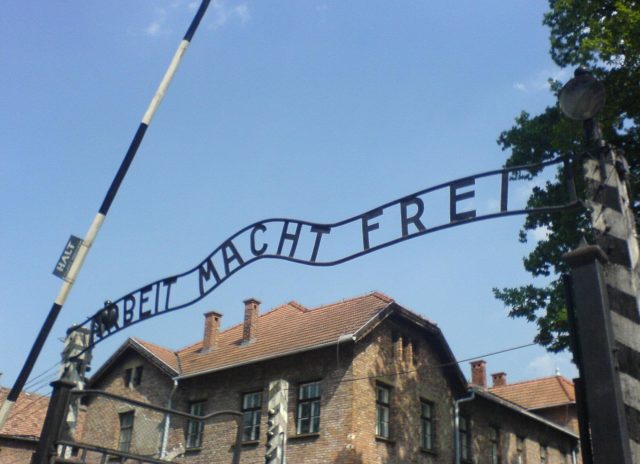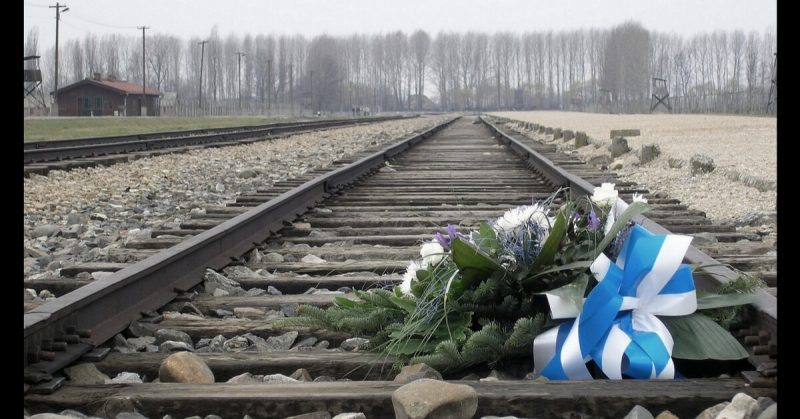On January 27, 1945, soldiers from the Soviet Army’s 322nd Rifle Division entered the remains of the death camp at Auschwitz – Birkenau. The camp was recently abandoned by German soldiers, and there remained some 7500 prisoners there, still hanging on to life.
In the preceding weeks, following orders from the high command, operations had begun to try to hide the evidence of the monstrous crimes which had taken place there. Crematoria were dismantled, written records destroyed, and many of the camp’s buildings demolished. Tens of thousands of prisoners were marched out to be transferred to other camps. Those who could not march were shot. By the time the Soviets arrived, there remained only around 7500 of the camp’s inmates, and many hundreds of the dead.

This day, January 27, has been used to mark Holocaust Memorial Day in the UK since 2001. The day also marks International Holocaust Remembrance Day, and many other Memorial days around the world, including the Memorial Day for the Victims of National Socialism (Tag des Gedenkens an die Opfer des Nationalsozialismus) in Germany, and the Memorial Day for the Victims of the Holocaust and Prevention of Crimes against Humanity (Den památky obětí holocaustu a předcházení zločinu proti lidskosti) in the Czech republic, among many others.
Today, ceremonies in the UK, across Europe, and around the world marked this day with tributes, ceremonies, music, and speeches. At Auschwitz – Birkenau itself, near Warsaw, Poland, dozens of Holocaust survivors gathered to lay wreaths and flowers. The spot chosen for this ceremony was the infamous “execution wall” where, during years of the camp’s operation, thousands of prisoners were shot. The survivors who laid the wreaths and flowers today were joined in the ceremony by politicians and dignitaries.
The day has been marked by tributes in parliaments and town halls, at memorials and in public places, online, in print, and on television and radio, across the world. Today is one of those days where we must take a moment to stop, think, and resolve: “never again.”
